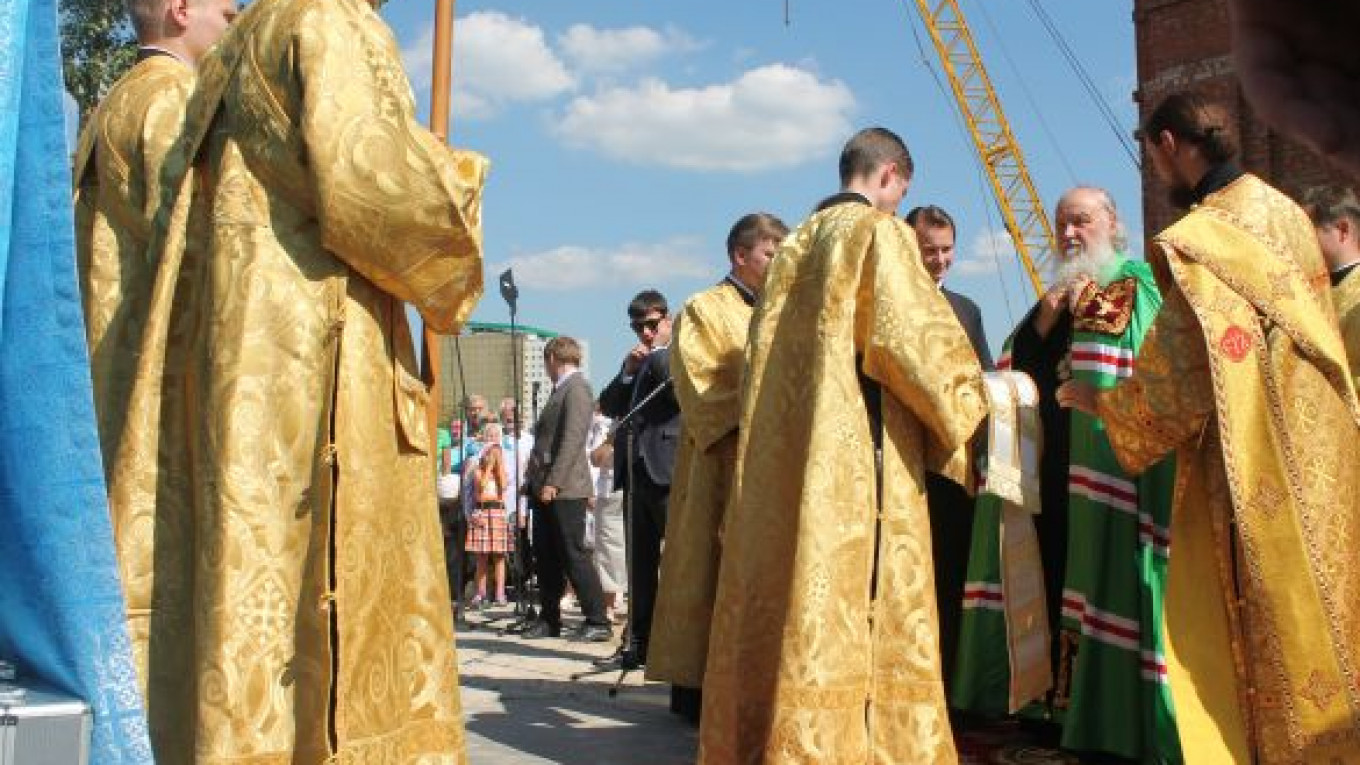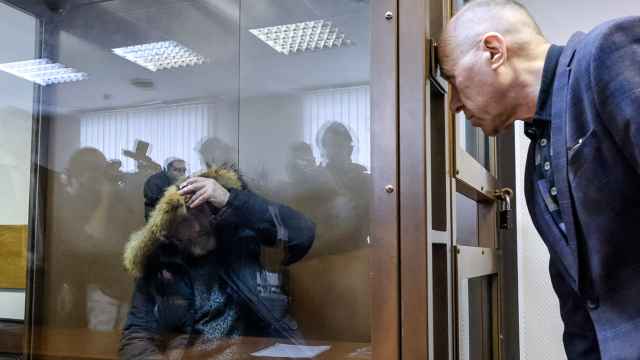Highlighting vibrant ties between the Russian Orthodox Church and the intelligence community, Patriarch Kirill oversaw the laying of the cornerstone for a new church at a FSB academy on Tuesday.
The brick Iverskaya Mother of God Icon Church will stand near the main building of the Federal Security Service Academy on 70 Michurinsky Prospekt near the Universitet metro in western Moscow and serve professors and FSB cadets.
The timing of the cornerstone-laying ceremony and the mingling of Patriarch Kirill with senior FSB officials sent a signal of support for the church, which has come under attack from the educated community recently for supporting felony charges against the Pussy Riot band. Three rockers went on trial this week for singing an anti-Putin song in Christ the Savior Cathedral in February.
Viktor Ostroukhov, head of the Federal Security Service Academy, said at Tuesday's ceremony that intelligence officers are "concerned" by attacks on the "Christian way of life."
"Those attacks are aimed at young people," Ostroukhov said, adding that his "armed" officers stand united with the Russian Orthodox Church.
While the Communist regime denounced religion and prosecuted priests in Soviet times, the relationship between the church and security services has flourished after the Soviet collapse. "The relationship between the church and FSB is very friendly, and they cooperate closely with each other," said Andrei Soldatov, who tracks the FSB with the Agentura.ru think tank.
He said ties were especially strengthened in 2000 when the Federal Border Service, which answers to the FSB, deported a number of Catholic priests on suspicion of spying.
Observers said at that time that the expulsions were carried out on behalf of the Russian Orthodox Church, which was worried about proselytizing by the Roman Catholic Church.
An Orthodox dissident priest and member of the Moscow Helsinki Group, Father Gleb Yakunin said by telephone that his studies of declassified KGB archives indicated that Kirill might have had ties to the KGB while working for the Russian Orthodox Church in the West in the 1980s.
Similar accusations of KGB links were made about Kirill's predecessor, Patriarch Alexey II, who died in 2008.
Speaking at Tuesday's ceremony, Patriarch Kirill said the new church would also be open to the public and serve as a replacement for neighborhood churches destroyed in Soviet times.
"There is a lack of churches in the city," he said. "When you have one church for 100,000 people, it is hard to perform worship services."
The Russian Orthodox Church earlier unveiled plans to build 200 new churches in Moscow, and it has created a fund to support the program. Some critics say the money could be put to better use repairing existing churches.
A Message from The Moscow Times:
Dear readers,
We are facing unprecedented challenges. Russia's Prosecutor General's Office has designated The Moscow Times as an "undesirable" organization, criminalizing our work and putting our staff at risk of prosecution. This follows our earlier unjust labeling as a "foreign agent."
These actions are direct attempts to silence independent journalism in Russia. The authorities claim our work "discredits the decisions of the Russian leadership." We see things differently: we strive to provide accurate, unbiased reporting on Russia.
We, the journalists of The Moscow Times, refuse to be silenced. But to continue our work, we need your help.
Your support, no matter how small, makes a world of difference. If you can, please support us monthly starting from just $2. It's quick to set up, and every contribution makes a significant impact.
By supporting The Moscow Times, you're defending open, independent journalism in the face of repression. Thank you for standing with us.
Remind me later.






